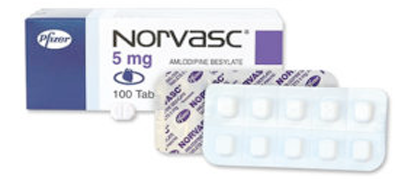

Norvasc, also known by its generic name amlodipine, is a medication primarily prescribed for the treatment of high blood pressure (hypertension) and chest pain known as angina. It belongs to a class of drugs called calcium channel blockers, which work by relaxing the blood vessels, allowing blood to flow more easily, and reducing the workload on the heart. By lowering blood pressure and improving blood flow to the heart muscle, Norvasc helps to reduce the risk of heart attack, stroke, and other cardiovascular complications associated with hypertension and angina.
One of the key benefits of Norvasc is its long-lasting effects, allowing for once-daily dosing and providing consistent blood pressure control throughout the day. This convenience enhances patient adherence to treatment regimens, leading to better overall outcomes. However, like all medications, Norvasc may cause side effects in some individuals, including dizziness, swelling in the ankles or feet, flushing, and fatigue. Serious side effects are rare but can include irregular heartbeat, shortness of breath, and fainting. It’s important for patients to discuss any concerns or potential side effects with their healthcare provider and to follow their prescribed treatment plan closely. Overall, Norvasc is an effective and commonly prescribed medication for managing high blood pressure and angina, helping millions of individuals achieve better cardiovascular health and quality of life.

